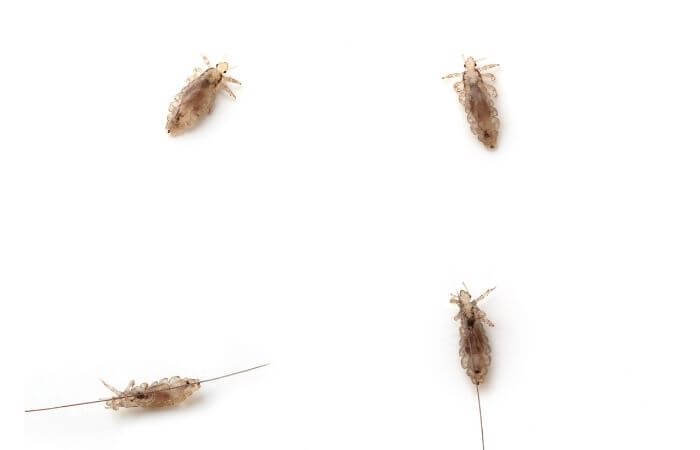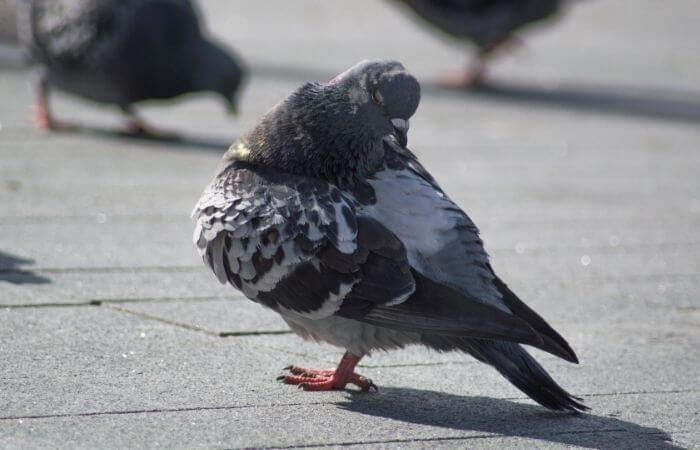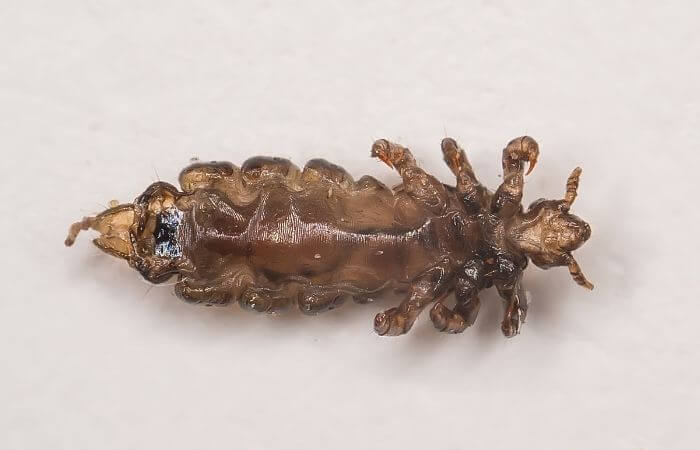Unfortunately, pigeons do suffer from lice.
Luckily, they are external and are called ectoparasites, the same as mites and fleas.
Most veterinarians will tell you that this is a mild condition and easily taken care of, but that doesn’t mean that lice infestation can be taken lightly.

Healthy pigeons can cope with lice infection, but for sick or very young pigeons they can be dangerous.
There are many different species of lice and some feed on blood.
These can cause anemia in pigeons and cause further health problems for your birds, so you need to stamp it out as soon as possible.
If you keep multiple birds, you don’t want the lice infecting all the others.
The lice can jump from one host to another and can live for between 2-3 months.
They also reproduce quickly, by laying eggs among the pigeon’s feathers, which hatch within 2-3 days.
Symptoms of Pigeon Lice
If a pigeon is restless, seems irritated, or is prone to excessive preening, such as constant ruffling of their feathers or scratching, then they might have lice.

If a bird is listless, that’s a good reason to check for lice.
Another sign is their feathers taking on a ragged appearance.
Lice are tiny and difficult to detect, some need a magnifying glass to spot.
To the naked eye, they look like very small brownish specks.
Another way to tell if your pigeons have lice is to inspect their feather bones, but they also attach themselves to the skin.
Lice eat into these bones and leave damage called ‘pinholes’.
If you see those, then your pigeons definitely have lice.
Luckily, lice don’t survive more than a couple of days without their host, so quick intervention with treatment and isolation could save the rest of your birds from becoming infected.
How To Treat Pigeon Lice
Different treatments can be found at pet stores or pet accessory outlets, but it is best to check with a specialist avian veterinarian to find out which species of lice you are dealing with before you set about treating your birds.
On knowing what kind of lice, he or she, can recommend the correct medication.

These delousing medications can be either an external insecticide, submerging the bird in a solution or spray, or an oral dosage.
Some experienced bird fanciers may have their own remedies, which have worked for them in the past, so check with them, but also with a vet.
Do not use any lice treatment made for humans on your birds, only those made for avian medication.
Feathers that have been lost to lice damage will grow back.
Cleaning
It goes without saying that one pigeon found with lice should be isolated at once and treated until you are sure that all the lice are exterminated, so others aren’t infected.
Whatever the case, one or more birds, you will have to clean the cage or loft.
The area in which you keep your birds should be thoroughly swept and disinfected to stop a recurrence of the infestation.
Pigeon lice can cause skin irritations and may bite humans so cover up and use gloves when cleaning up and handling infected birds.
Parasites
Pigeon lice and other parasites are unfortunate but are part and parcel of keeping these wonderful birds.
At some point your pets will probably be plagued by lice, but don’t worry about it, it’s just one of the bugbears of being a pigeon fancier.
All you need to do is be prepared and act quickly to alleviate your birds from this affliction as rapidly and as safely as possible.

This article was written by our qualified veterinarian Cristina.
This is part of our commitment to providing you with the most trustworthy veterinary advice for your pigeons.
Sources:
